| biography | 
|
Michael Chabon (pronounced, as he says, "Shea as in Stadium, Bon as in Jovi") was born May 24, 1963 in Washington, D.C., and grew up in the suburbs
of Columbia, Maryland. His parents were of Polish, Lithuanian, and Russian
roots, and his last name is either Moldavian or Belarussian and means "shepherd."
His parents divorced when he was about 11. His father, Robert, was a pediatrician, lawyer and hospital administrator, and he is now an executive at Mutual of Omaha.
Chabon lived with his mother, Sharon,
while she attended law school and established a career as a lawyer. Later in
life, divorce and single-parenthood would become regular themes in his stories,
often with men who either struggled with fatherhood or were bad fathers.
As a child, Chabon was a dedicated comic book geek, collecting DC and Marvel titles.
His grandfather had been a typographer at a plant New York where comic books, among other things, were
printed. His grandfather would bring home bags of free comics for Chabon's father.
Chabon told the Onion A.V. Club in 2000 that "when I started reading, my father thought it was only natural that I should take an interest in comic books, too, and he started bringing me comics to read, although he wasn't getting them for free."
Chabon read mostly DC Comics when he was young, which he said "were still very much what they had been for many
years: somewhat naive, innocent, primary-colored, and set in a world with very clear distinctions between good and
evil." When he got older, he switched to Marvel, "where things were murkier and more ambiguous and the heroes had
the famous 'feet of clay' and more human foibles and failings."
At 10, he tried to establish a comic book club, renting a multi-purpose room for $25 and placing advertisements
in newspapers. Only one kid showed up, though, and he left soon after showing up. As Chabon wrote in
Details in October 2005, "that was the moment that I began to think of myself as a failure. It's a habit I have never since lost.
Anyone who has ever received a bad review knows how it outlasts, by decades, the memory of a favorable word.
In my heart, to this day, I am always sitting at a big table, in a roomful of chairs, behind a pile of errors,
lies and exclamation points, watching an empty doorway."
During high school, he abandoned comic books
for music, becoming a fan of Queen. "After sixteen, I stopped completely," he told Rolling
Stone in 2001. "I sold my collection. I got into other things, like music. I got my first stereo when I
was sixteen, and that totally revolutionized my life. I started buying records. That was where my
obsessive need to master an entire body of knowledge went at that point."
He was a good kid throughout high school, almost never getting in trouble and
never drinking or doing drugs. When he hit college, he started smoking, drinking,
doing pot, and fooling around. But, as he told Rolling Stone, "by then, it wasn't really
rebelling because I wasn't at home."
Wonder Boy
Following a one-year stint at Carnegie Mellon University, Chabon transfered to the
University of Pittsburgh, where he studied under authors
Dennis Bartel, Eve Shelnutt, and Chuck Kinder. During his studies, Chabon formed a close friendship with Kinder, who had only just
begun his 15 year work on a book titled Honeymooners: A Cautionary Tale. At one point, the novel comprised of
three volumes, each about 1,000 pages long. Chabon got a glance at the enormous pile of paper and later used Kinder
as the partial-basis for Wonder Boys's Grady Tripp. Kinder eventually cut the book down to about 400 pages
and published it in 2002.
Upon graduation in 1984, Chabon entered into a master's program in creative writing at UC Irvine, taking classes under MacDonald Harris and Oakley
Hall. "Oakley would stay on a piece of writing, get into it on a molecular level," Chabon told the
Los Angeles Times
in 2008. "He wasn't harsh [in his critiques], but he didn't pull any punches. He didn't worry if what he said would be easy to hear."
In 1987, Chabon graduated from Irvine and married poet Lollie Groth. He also won a short-story contest in
Mademoiselle. But perhaps more importantly, Chabon also finished his master's thesis, The
Mysteries of Pittsburgh, a novel he began in April 1985.
Set in summer, the novel tells the story of Art Bechstein, the son of a mobster, who, struggles with his sexuality
and love for two different people, Arthur Lecomte and Phlox Lombardi. Chabon later explained why he wrote the book:
"I had just been through, in the years preceding my decampment for the West, a pair of summers that had rattled my
nerves and rocked my soul and shook my sense of self -- but in a good way. I had drunk a lot, and smoked a lot, and
listened to a ton of great music, and talked way too much about all of those activities, and about talking about
those activities. I had slept with one man whom I loved, and learned to love another man so much that it would never
have occurred to me to want to sleep with him. I had seen things and gone places in and around Pittsburgh, during
those summers, that had shocked the innocent, pale, freckled Fitzgerald who lived in the great blank Minnesota of my heart."
Chabon never intended to publish his Fitzgerald-esque novel. However, his professor
MacDonald Harris (Don Heiney) secretly sent the manuscript to an agent. Pleased with the novel, the agent took
Chabon on and sold the novel to William Morrow Publishers for a $155,000 advance at a private auction, an incredible sum for
a first-time novel since most average $5,000 to $7,500. The novel had its first printing in 1988 and was a great success.
The success also had an unexpected twist: As the novel dealt with homosexuality,
many came to believe the work reflected Chabon's own homosexuality, a rumor that found its way into a
Newsweek article. While Chabon has repeatedly said he was not gay, the rumor and the novel secured him a strong gay
readership. Future novels and short stories would come to feature friendships between gay and straight men.
"I'm interested in questions of identity and sexuality and how things like that get determined and defined," he told Rolling Stone in 2001.
"And I'm interested especially in relationships between straight men and gay men, because I think there are
a lot of friendships like that out there where one best friend is gay and one is straight, but those friendships
I don't think get written about much, or depicted or portrayed in movies or television. I've had a lot of them
in my life. We were talking earlier about the boxes you get put in, and how people are so much more complicated.
And I think a lot of life is lived in between the boxes or outside of the boxes, but there are no words or labels or
designations for those spaces. And that, to me, is great material for fiction."
Now a published author at the age of only 23, Chabon prepared himself to
write his next novel, Fountain City, an epic of about
baseball and architecture. Over the next five years, the novel grew to the
enormous length of 1,000 pages, with his editor at Morrow, Douglas
Stumpf, pushing him on. But as years passed and the book spiraled out of control, Chabon realized that the
novel had no direction and had collapsed upon itself. He published a collection
of previously-published short stories in 1991 titled A Model World as Fountain City continued to languish. Fearing becoming a one-hit wonder, Chabon turned his experience with City into his
second novel, Wonder Boys. Released in 1995, the novel became a hit and was later
adapted into a movie staring Michael Douglas. The movie bombed, though earned critical acclaim.
A New Love and Life
His career wasn't the only thing
having trouble. Chabon's domestic life endured dramatic changes during the course of writing
Fountain City. He moved six times in during the five years of writing. He also
divorced Groth in 1991. "My ex-wife and I had good times and bad times, fought and were silent, tried and gave up and tried some more before
finally throwing in the towel, focused, with the special self-absorption of the miserable, on our tiny drama and
its reverberations in our own chests," he wrote in a short story, "The Hand on My Shoulder," in 1997.
Three weeks later Chabon proposed. They married a year later.
Waldman has published six novels to date: Nursery Crimes; The Big Nap; A Playdate with Death;
Death Gets a Time Out; Daughter's Keeper; and Love and Other Impossible Pursuits.
The couple have four children: Sophie, Isaac, Rosie, and Abraham.
The family lives in a house in Berkley, California. Normally, Chabon writes from 10 p.m. to 4 a.m.
Sunday through Thursday, often in the same room that his wife writes in.
He likes to wear his favorite sweater, an ugly, old golden-brown cardigan from Nordstrom that's the "perfect writing sweater" (Harper's Bazaar, June 2001), and writes a minimum of 1,000 words per day. Chabon has noted that
he partly based the professional relationship between Kavalier & Clay's Sam and Rosa off of their real life
routine. "We work in the same room," he told the New York Times in June 2004. "I sit at the desk, and she lies on the couch and works on the laptop. I ask her from time to time if I can't think of a word or a person. If you're bothering the other person, they say, I can't talk right now. But mostly we're in there, and it's just click, click, click."
Waldman, who did a stint as a blogger before nabbing a column with Salon.com, once blogged about the differences between their writing careers. "No one who interviews me can believe I'm not consumed with envy of my husband,"
Waldman wrote in November 2004. "They just don't accept that a writer of my total lack of fame is not eating her green kishkes out when forced to confront her husband's literary success. I really am not, however. It would be like being jealous of Nabokov."
"It Is Time For Him To Move On"
Although critics loved Wonder Boys, Jonathan Yardley of The Washington
Post ended his review saying that Chabon should set his sights higher.
"Chabon is now in his early thirties," Yardley wrote. "He has published a
first-person coming-of-age novel, a book of stories many of which are narrated in the first person, and
a first-person novel about writing. As has already been said, he is not a narcissistic writer, but there
are signs here of a familiar pattern. Though Chabon has demonstrated a keen understanding of other people's
minds and lives, thus far his preoccupation has been with fictional explorations of his own. It is time for
him to move on, to break away from the first person and explore larger worlds. His apprenticeship is done;
it has been brilliant, but the books as yet unwritten are the ones in which we will learn just how far this
singular writer can go."
This echoed with Chabon's own feelings, and with that in mind, he began work on
his most ambitious novel yet. For the next five years, Chabon engrossed
himself in the past, specifically regarding New York, comic books, and escape
artists. Chabon feared the length of his new novel given his failure with Fountain City, especially since his style
tended to allow plots to grow organically. But he trusted that his story of two
Jewish comic creators and their attempts to escape and face reality would manifest itself
into a working novel.
The Amazing Adventures of Kavalier & Clay hit bookstores in the fall of
2000 to critical success. It was selected as a Notable Book of 2000 by the American
Library Association and was a finalist
for the National Book Critics Circle Award, the PEN/Faulkner Award, and the
Los Angeles Times Book Prize. It went on to win the New York Society Library
Prize for Fiction, the Bay Area Book Reviewers Award, the Commonwealth Club
Gold Medal, and a little award called the Pulitzer Prize.
Kavalier & Clay also drew on Chabon's Jewish beliefs, focusing on the struggles of being Jewish in America. It was not the first of his
books to feature Jewish characters, as Mysteries of Pittsburgh featured Jewish
gangsters and Wonder Boys had a surreal Passover dinner sequence. The
Jewish
Journal of the Greater Los Angeles reported in 2000 that Chabon is an active attendant at a Jewish Renewal congregation called Kehilla Community Synagogue and sits on the synagogue's board.
"It is through Kehilla that I see myself, at least in the foreseeable future, defining my Jewish identity," Chabon said.
"Voyage of Rediscovery"
Kavalier & Clay marked a turning point for Chabon not just in his writing style but also in his literary philosophy. Escape, a principle theme in the book, came to define Chabon's next efforts. Gone were characters like Nathan Shapiro and Art Bechstein, young men seeking answers to love and life. Enter the Ethan Felds and Sherlock Holmes, who, while retaining the complexities of Chabon's traditional characters, carried a more lighthearted feel.
"I had been on this voyage of rediscovery the past four years or so, trying to explore the sources of my interest in short stories," Chabon told Rocky Mountain News in February 2005. "As part of that project, I was re-reading Arthur Conan Doyle's Sherlock Holmes stories - those were definitely my first favorites."
His next novels fully embraced the new sources of inspiration. He released a children's novel, Summerland,
in 2002 in which the literary worlds of fantasy were given an American twist. While
not as successful as Harry Potter, the books it is most often compared to, Summerland proved Chabon could
write for a young adult audience. He also edited McSweeney's Mammoth Treasury of Thrilling Tales and its follow-up,
published a short Sherlock Holmes novella called The Final Solution in 2004.
His fifth novel, The Yiddish
Policemen's Union, chronicled a murder mystery set in an alternative history where post-war Jews settled in Alaska rather than Israel.
Published in 2007, the novel remained on the New York Times Best Seller List for six weeks. Producer Scott Rudin optioned
it and signed the Coen Brothers to adapt it into a feature film.
Genre fiction became not just a favorite type of story for Chabon but a metaphor at times as well. In April 2005, Chabon told the Australian publication Stuff that with The Final Solution, he chose to go the mystery route as a metaphor, a way of "producing the sense of mystery with a capital 'M'. This allows us to talk about things that cannot be explained. In that sense, one of the great insoluble Mysteries of the human race is the Holocaust."
A Life Online
Chabon first set up a Web site at EarthLink as early as December 1998, according to records maintained by The Way Back Machine, an online archive of dead Web sites.
It was a simple Web site, then called "Bumps on My Head." An image map of a big head allowed visitors to navigate to
unpublished stories, like his X-Men movie proposal, a site he built dedicated to Wonder Boys character August Van
Zorn, and to a brief news section, among other features.
It also contained his e-mail address. When The Mysteries of Pittsburgh was published in 1988, Chabon was only
able to respond to fan mail after it was first snail mailed to his publisher. They would pile up, he later told The New York Times.
"They became a big albatross for me," Chabon said, adding that by the time he responded, "the person had already decided you are a jerk."
With e-mail, though, he could reply in a couple minutes. He included the address in the dust jacket flap of Wonder Boys; three
weeks after it hit the stands, he had 150 letters.
"I used to wonder if anyone ever noticed the little references or jokes or allusions in my books," he said. With e-mail, though, readers
were telling him they noticed. "It's very gratifying," he told the Times.
In late 2000, Chabon moved his site to michaelchabon.com. Following the publication of Kavalier & Clay, though, the response was overwhelming, and Chabon changed addresses and removed the link to his address from his Web site.
"Since [the publication of Wonder Boys], I have moved my email address onto my website, moved my website to a larger server, and, with time, in fits and starts, the volume of mail has grown," Chabon said in an apology posted on his site. "We aren't talking about HUGE, Bobby Shermanesque volumes of mail, let me make it clear. Just too much, on a daily basis, for me to handle alone. Which is the only way I feel comfortable handling it. So, regretfully, I have decided to remove the mailto: link from my site."
Meanwhile, Waldman was beginning to get into the online game. With Chabon's help, she put her own site online in 2000,
featuring a children's drawing for an image map. Called "The World of Juliet Applebaum" after the main character
in her "Mommy-Track" series, the site at first mirrored Chabon's in many ways, with a list of favorite books
and a schedule. But soon she found her own niche, chronicling what she read. The site got a dramatic revamp in 2003.
What really destinguished Waldman from Chabon online, though, was her blog. Within the Chabon-Waldman household,
the Kavalier & Clay author had been forbitten from creating a blog. "I just caught Michael blogging, and that's not going to happen," Waldman said in her first post. "We have a goddamn mortgage to pay, and he's got THREE books due. But I'm all done. Caught up. No deadlines looming."
And thus Bad Mother was born. Waldman would post about her kids,
her work, the day's political happenings, and anything else on her mind. It was a personal side of her that had not been
seen before, and could reveal exactly how much of herself had been put into her own characters. She later would say, in a column for Salon, that the blog was the first time Chabon realized his wife was
having suicidal thoughts. The New York Times featured her blog in a January 2005 article about mothers who blog.
But by that February, it became too much for Waldman, and she
ended the blog when she landed a column at Salon.
In April 2005, Chabon revamped his Web site, encorporating in Moveable Type, other blog features, and a slick design. He continued to update it with news and unpublished stories.
But in November 2006, Chabon, suffering from Repetitive Strain Injury and bored of the Internet, shut the site down.
"As I have been spending less time online I have found that I've lost interest in the web as a whole, and in my site in particular," he said at his site. "I'm tired of having to maintain www.michaelchabon.com, but I hate that it gets stale, and so quickly. Yet I don't feel comfortable with or have any interest in getting somebody else to do it for me."
From the Book Shelf to the Box Office
In a 2000 interview with The Onion, Chabon explained that his movie writing was more about money than art.
"The problems you have as a novelist tend to have to do with making a living and trying to find ways to supplement the income you get from writing novels," Chabon said at the time. "In my case, so far, I've been able to get by working in Hollywood with this TV stuff I've been doing. And it's very important, because my wife is a writer, too, and we don't have health insurance through any employer. Therefore, our health insurance comes through the screenwriter's guild, so I can only ensure my family's health by working in Hollywood."
He continued: "In a way, that's a problem for me, because I'd much prefer to be writing novels all the time. But from the point of view of the marketplace for novels, I want my book to do well, and I want my publisher to be happy with me and to feel like I'm a good bet."
That's not to say his film work has gone totally unappreciated. Rogert Ebert, reviewing the Spider-Man sequel, said, "One of the keys to the movie's success must be the contribution of novelist Michael Chabon to the screenplay; Chabon understands in his bones what comic books are, and why."
Things could also change with the release of Disney's Snow and the Seven, a kung-fu remake of the Snow White tale, which Chabon is writing.
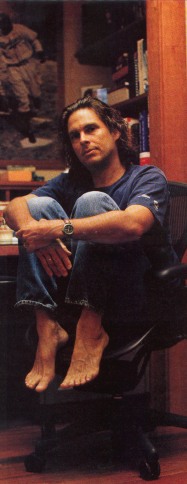 Growing Up
Growing Up
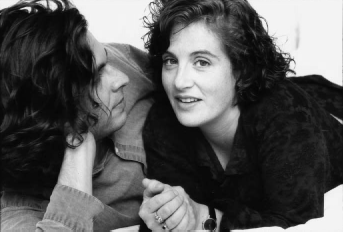 Chabon lived with another woman before meeting his new love,
Ayelet Waldman, on a blind-date in 1992. Waldman, a lawyer-turned-author, knew of Chabon's reputation before heading into
the date. "When he showed up, I said, 'Thank you for the flowers, and are you gay?'" Waldman recalled to the
LA Times.
Chabon lived with another woman before meeting his new love,
Ayelet Waldman, on a blind-date in 1992. Waldman, a lawyer-turned-author, knew of Chabon's reputation before heading into
the date. "When he showed up, I said, 'Thank you for the flowers, and are you gay?'" Waldman recalled to the
LA Times.
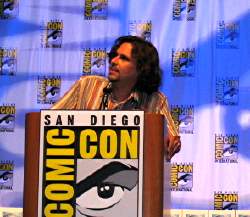 Just as Mysteries of Pittsburgh brought Chabon a dedicated gay audience,
Kavalier & Clay secured him a strong readership amongst comic book fans. Chabon found himself
as a guest at several comic conventions, and DC Comics invited him to pen a story for JSA: All-Stars #7 featuring his favorite character, Mr. Terrific.
He also wrote a draft of Spider-Man 2. Perhaps most impressive was the publication by Dark Horse Comics of a
quarterly anthology of comic stories featuring Kavalier & Clay's fictional
superhero, the Escapist, titled Michael Chabon Presents: The Amazing Adventures of the Escapist.
Just as Mysteries of Pittsburgh brought Chabon a dedicated gay audience,
Kavalier & Clay secured him a strong readership amongst comic book fans. Chabon found himself
as a guest at several comic conventions, and DC Comics invited him to pen a story for JSA: All-Stars #7 featuring his favorite character, Mr. Terrific.
He also wrote a draft of Spider-Man 2. Perhaps most impressive was the publication by Dark Horse Comics of a
quarterly anthology of comic stories featuring Kavalier & Clay's fictional
superhero, the Escapist, titled Michael Chabon Presents: The Amazing Adventures of the Escapist.
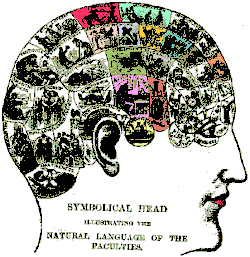 Unlike authors of latter day, Chabon and Waldman have come onto the scene during the day of the World Wide Web. It's a scene
both authors have come to have seemingly love-hate relationships with.
Unlike authors of latter day, Chabon and Waldman have come onto the scene during the day of the World Wide Web. It's a scene
both authors have come to have seemingly love-hate relationships with.
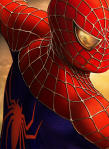 Unlike with literature, Chabon has
struggled to find success in Hollywood. He had pitches for movie adaptations of Fantastic Four and
X-Men rejected; a script for a movie called Gentleman Host killed; and seen
TV series ideas such as "House of Gold" and
"Garageland" never hit the air. Chabon's Spider-Man 2 script saw a
rewrite by Alvin Sargent, and his adaptation The Amazing Adventures of Kavalier & Clay, his own novel, has gone
through at least eight drafts to date with no production date in sight.
Unlike with literature, Chabon has
struggled to find success in Hollywood. He had pitches for movie adaptations of Fantastic Four and
X-Men rejected; a script for a movie called Gentleman Host killed; and seen
TV series ideas such as "House of Gold" and
"Garageland" never hit the air. Chabon's Spider-Man 2 script saw a
rewrite by Alvin Sargent, and his adaptation The Amazing Adventures of Kavalier & Clay, his own novel, has gone
through at least eight drafts to date with no production date in sight.